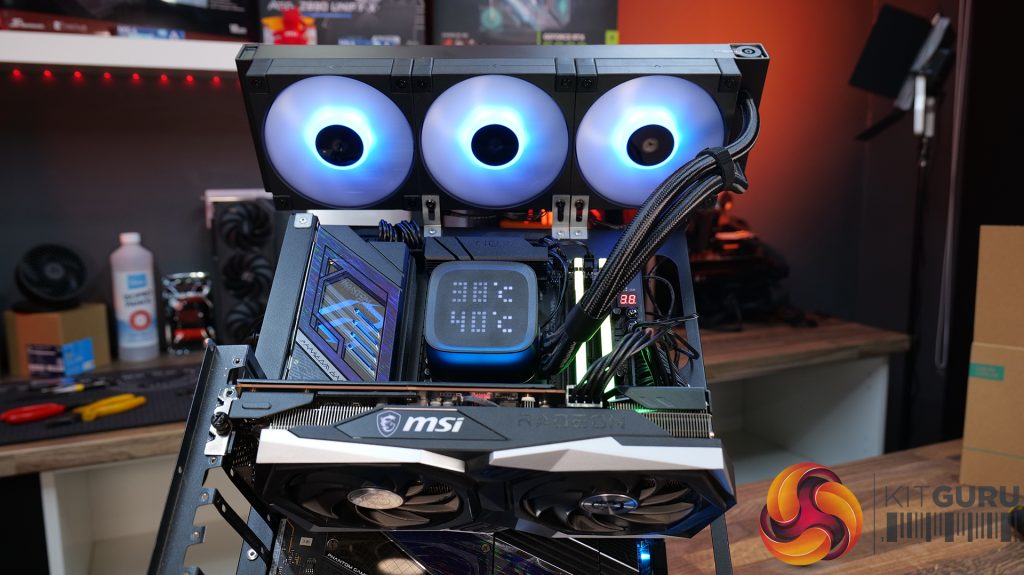
Test System Specifications:
- CPU: AMD Ryzen 9 9950X
- Motherboard: ASRock Phantom Gaming X870E Nova WiFi
- Memory: 32GB (2 x 16GB Modules) Kingston Fury DDR5-6000
- Graphics card: MSI Radeon RX 6600 XT Gaming X
- Storage: 1TB Corsair MP600 Elite PCIe Gen4x4 NVME M.2 SSD
- Power Supply: Seasonic Prime TX-1600
- Chassis: Open Test Bench
- Thermal Compound: Arctic MX-6
- O/S: Windows 11 Version 24H2
Testing Methodology:
We are primarily focusing on the performance of each cooler at 100% fan speed and also when locked to 40dBA noise output. We will focus on cooling performance using a manual overclock with all-core frequency and VCORE locked to 5.2GHz/1.3V (AMD) and 5.5GHz/1.3V (Intel) and Precision Boost Overdrive performance.
- The test data is logged using HWINFO and the final 10 minutes of the data is calculated to find the average CPU temperature and CPU clock multiplier (AMD PBO Test) and then plotted in the charts.
- For testing, we use a 30-minute looped run of Cinebench R23 and record the steady-state CPU temperature at the end of the test. This ensures that the CPU has had ample time to warm up and reach a steady state under all of the coolers.
- The ambient is maintained at 19-21 degrees Celsius. Where there is variation beyond this temperature range, we add extra repeated tests to ensure consistency. However, this is well controlled now with A/C.
- We also test each cooler with at least two fresh installs (typically three) to mitigate the likelihood of poor mounting spoiling results.
- Ambient temperature and humidity are controlled via a mini split air conditioning system inside the test room. Ambient temperature is maintained between 19-20C, Temperature delta figures are shown in the charts (ambient temperature is deducted from the measured component temperature).
Test Results:
Acoustics
Let's start by looking at noise output as this gives us a good indication of performance based on the noise.
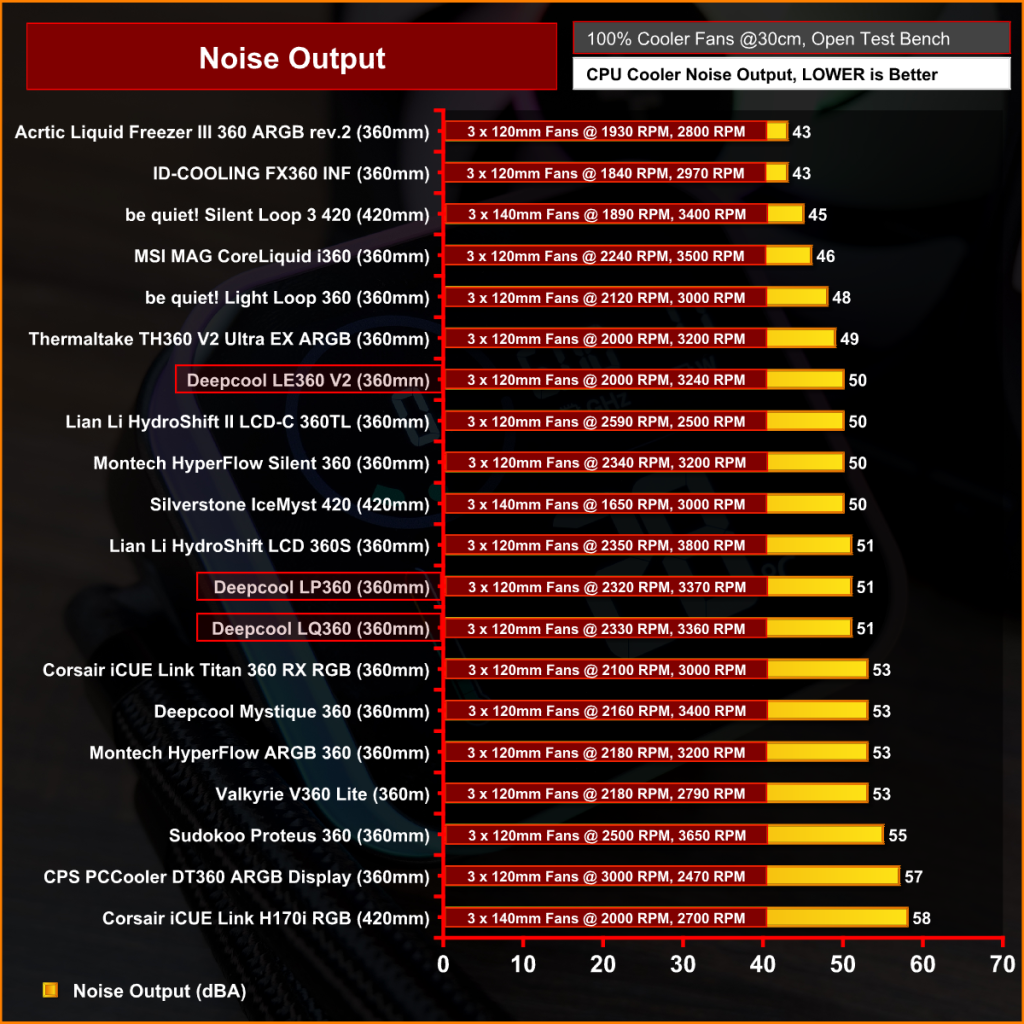
Both the LP and LQ360 coolers use the same fans so max speed and noise output are virtually identical at 51dBA. They are not terribly loud at maximum RPM but coolers like the be quiet! Light Loop 360 run a similar max fan speed but with much quieter operation, so the Deepcool LP and LQ coolers are quite noticeable and may be distracting at high fan speeds.
The LE360 V2 uses a different fan from the LP/LQ series with slightly lower max RPM, which means noise output is also reduced and is closer to the quieter 360mm coolers that we have previously tested at 50dBA max.
Thermal Performance: AMD Ryzen 9 9950X
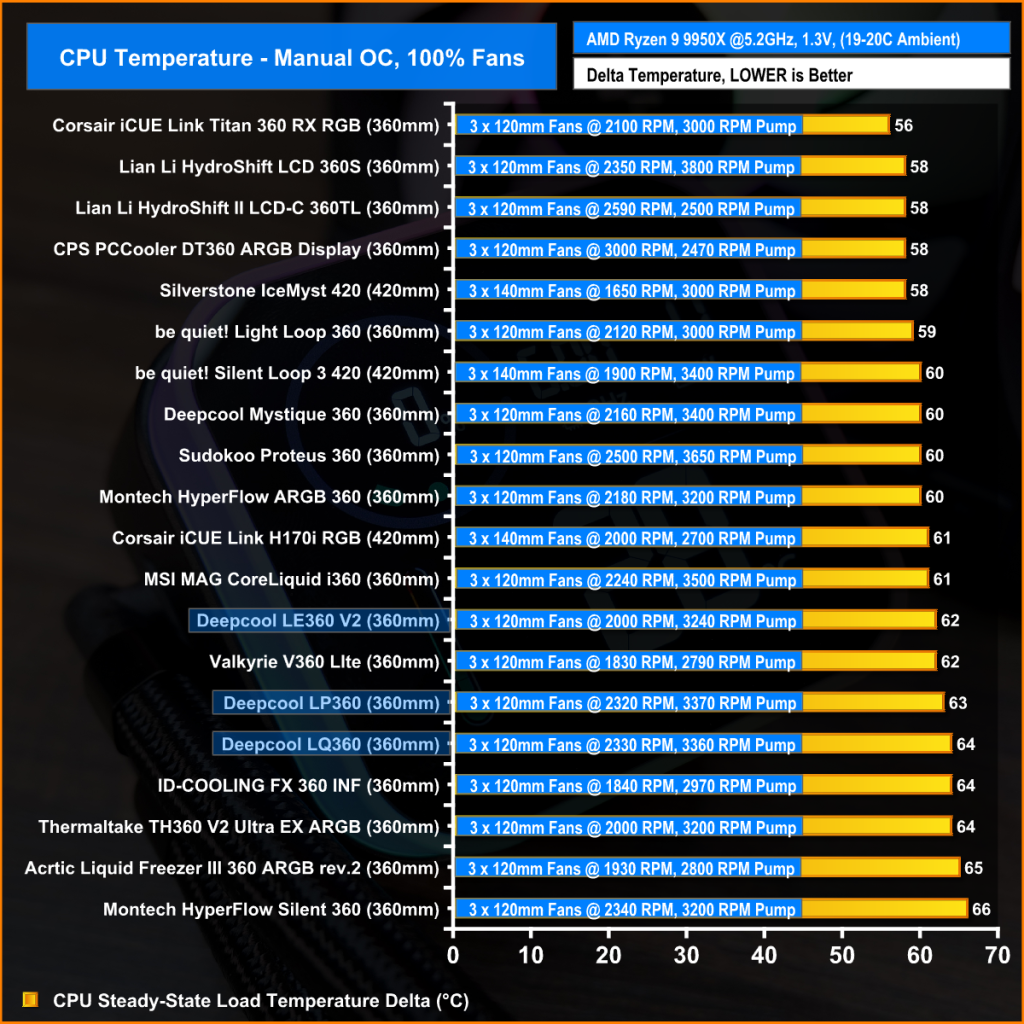
The high fan speed and relatively high noise output of the LP/LQ coolers don't translate into great thermal performance in the 100% fan speed test. At 63/64°C. The Deepcool LP360 and LQ360 are towards the bottom of the chart, running around 5-6°C hotter than some of the top performers.
Even with slightly lower fan speed the LE360 V2 performs slightly better at 62°C over ambient, but this is still a little off the top performers; however considering this is a budget AIO, it's not bad at all.
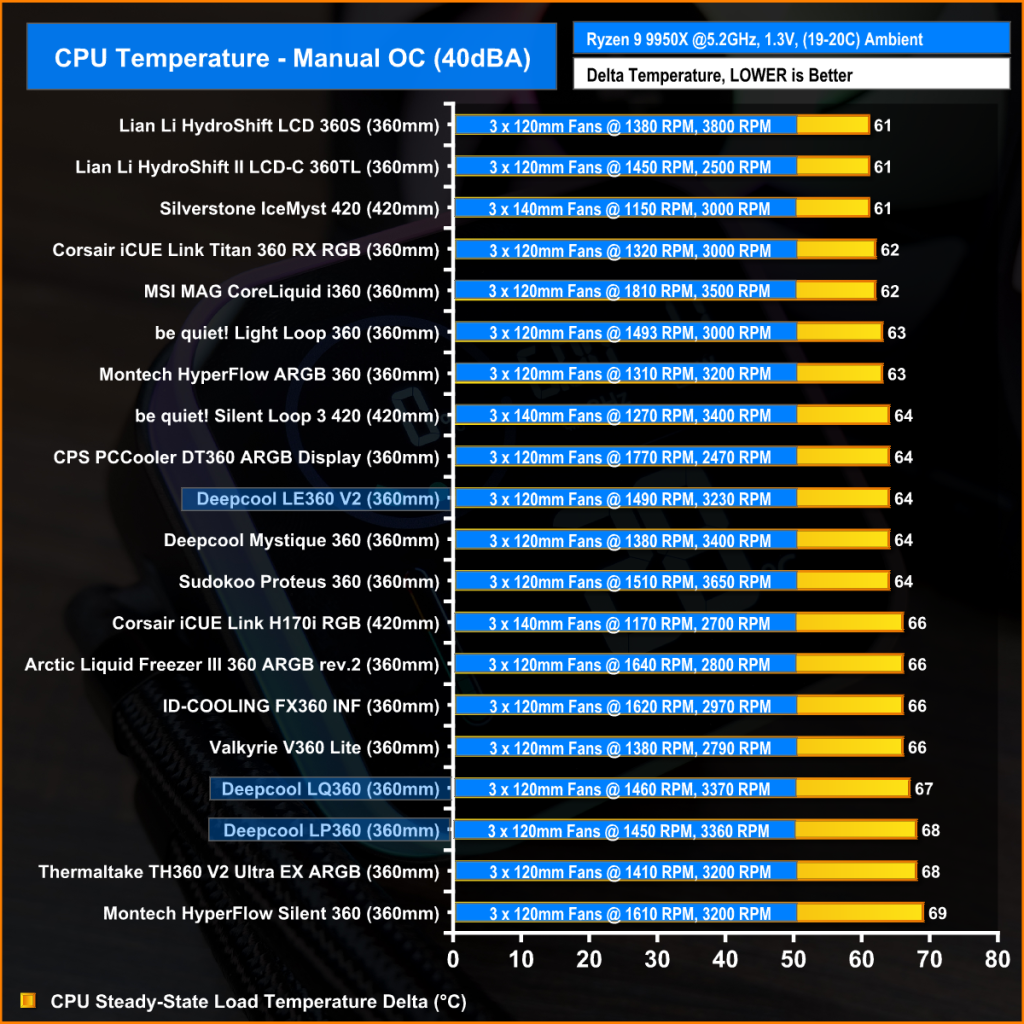
Reducing the coolers fan speed to hit the 40dBA target means the LP360 and LQ360 fan speed is lowered to around 1450RPM, which negatively impacts thermal performance further. At 40dBA these coolers produce some of the lowest figures we have seen so far at 67/68°C over ambient. The older Deepcool Mystique 360 is outperforming these newer coolers, so it feels like a backwards step from Deepcool.
The LE360 V2 is on par with the Mystique 360 at 40dba noise normalised which is good to see as it's almost half the price of the Mystique, albeit without the fancy LED display, but it's solid performance from a budget cooler.
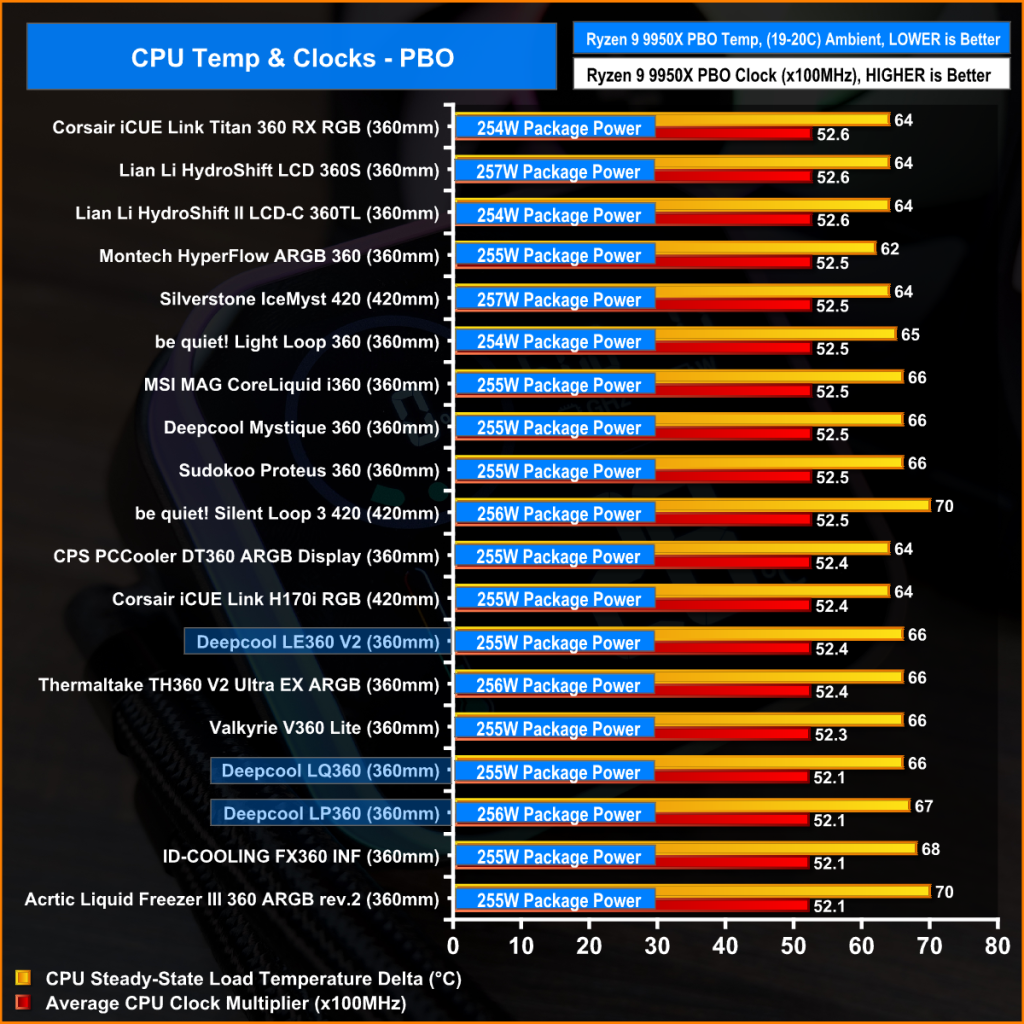
In the PBO test the CPU automatically adjusts CPU frequency based on maintaining a target temperature, so the clock multiplier is the important metric here.
Again, the LP and LQ series coolers perform lower than our expectations with a clock multiplier of just 51.2x while the cheaper LE360 V2 does a little better at 51.4x, so as seen in the other thermal tests, the cheaper cooler is performing better.
 KitGuru KitGuru.net – Tech News | Hardware News | Hardware Reviews | IOS | Mobile | Gaming | Graphics Cards
KitGuru KitGuru.net – Tech News | Hardware News | Hardware Reviews | IOS | Mobile | Gaming | Graphics Cards


